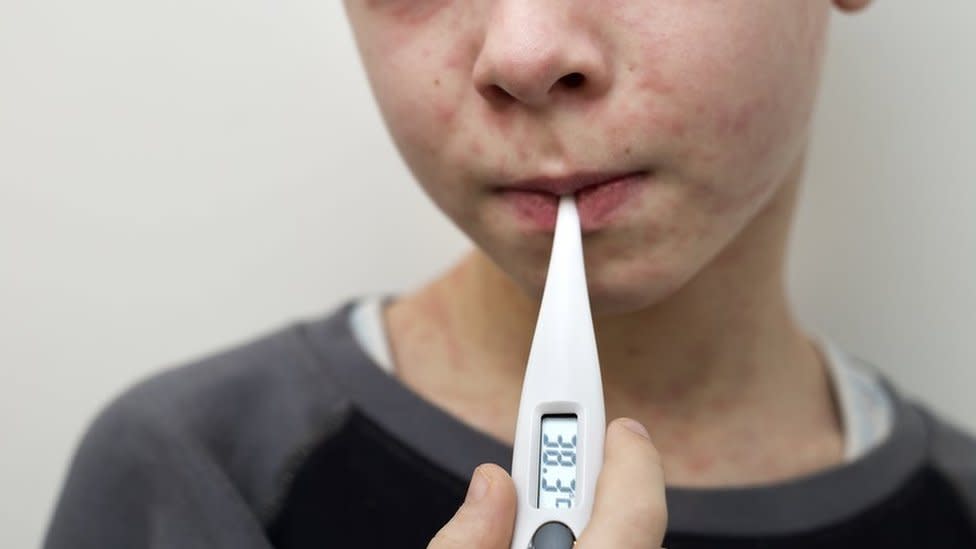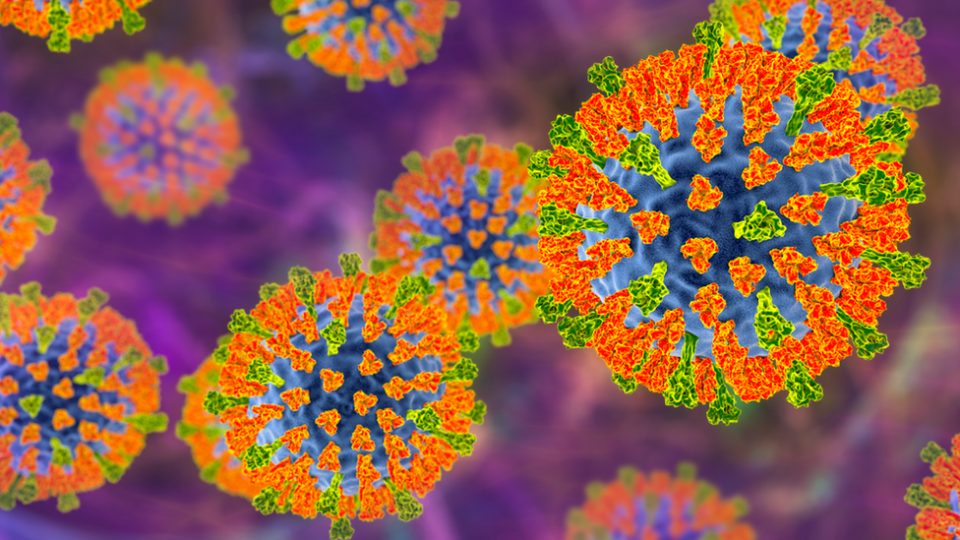Measles spreading in community as cases rise - Public Health Wales

Measles cases are now spreading in the community, Public Health Wales has said.
Nine cases have now been confirmed in south east Wales with fears the disease may be spreading.
PHW is urging parents and carers to ensure their children are fully vaccinated with two doses of the MMR to avoid catching it.
Early symptoms include a high temperature, cough, runny nose and painful, red eyes.
Small white spots inside the mouth can also be an indicator.
PHW said the cases are in the Gwent area, which covers the boroughs of Torfaen, Newport, Monmouthshire, Caerphilly and Blaenau Gwent.
It is been working with Aneurin Bevan University Health Board to identify contacts in each case and all those affected are currently being treated.
It has also provided them with advice on what action to take and information about the signs and symptoms of measles.
Beverley Griggs from PHW said: "Measles is a highly infectious disease and can have serious complications, particularly for babies, those with weakened immune systems and pregnant women.
"Children who have not received a full course of MMR vaccine may have to be withdrawn from school for up to 21 days, if they are identified as a contact of a measles case.

"We understand that this may have an impact on children who are due to sit exams soon and we would ask for parents continued support to stop further cases of measles in the community."
She added that adults who have never had measles or the MMR vaccine and who are in close contact with children are also urged to speak to their GP.
Prof Tracy Daszkiewicz from Aneurin Bevan University Health Board said the correct age for the first dose of MMR is about 12 months, with the second booster dose at about three years and four months.
"However, it is never too late to be vaccinated," she added.

